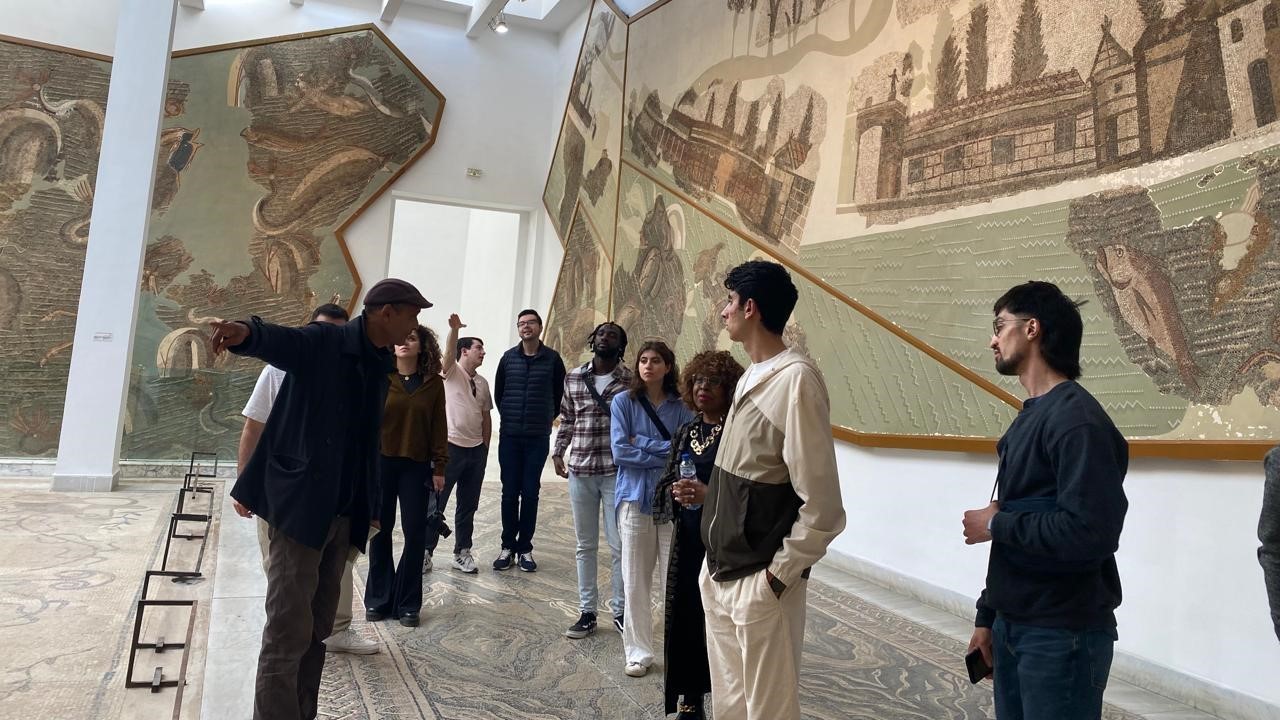During their stay in Tunisia, the Kraft Global Fellows seized the opportunity to explore one of the country's premier historical sites: the Bardo Museum in Tunis. Renowned for its commitment to preserving Tunisia's cultural legacy, this institution, once a Hafsid palace, now houses a diverse collection spanning from prehistoric artifacts to those from the Islamic periods.
The fellows found themselves drawn to the museum's Islamic history section, which offered a structured journey through Tunisia's past. Here, they encountered a variety of artifacts including Islamic art, manuscripts, ceramics, and textiles, each offering insights into different periods of Islamic culture in Tunisia.
Among the standout exhibits were the Roman mosaics. Depicting scenes ranging from everyday life to mythological tales and historical events, these mosaics, sourced from archaeological sites across Tunisia, showcased the artistic and cultural sophistication of Roman civilization in North Africa.
As the fellows delved deeper into the museum's offerings, they were struck by the complex identity of Tunisia, shaped by a mosaic of civilizations including Berber, Phoenician, Roman, Arab, and Islamic influences. Their exploration sparked discussions that enriched their understanding of the country's cultural evolution over time.

